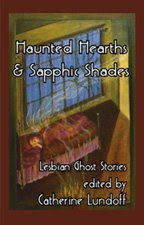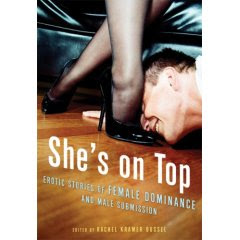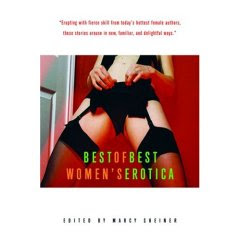Every year, I have down time where I don't write. I've learned not to push it. I read a lot and wait for the urge to come back. That used to scare me. Now I'm used to it and don't mind. (Okay, about the second month it gets to me and I pace a lot.) This year, I kept waiting for it to hit, but it didn't. That was kind of cool. Broke the curse. And then, last month, I got a bad case of the blues.
I was supposed to have a story in an anthology. I have the acceptance letter. I have the letters the editor sent to me discussing a few changes he wanted to the story. I have a publisher's contract for the story. I even received an email from the editor telling me when to expect my contributor's copy. Got hold of the book and... my story isn't in it. I sent the editor an email asking for an explanation. He hasn't bothered to reply. I understand human mistakes. I understand if he accepted too many stories and had to pull mine. I understand if the publisher pulled it. But in either case the editor should have told me. This doesn't just affect that that one anthology. It means that until I sell it somewhere else, I can't submit it to a Best Of anthology. So he really does owe me an explanation. Oh - and an apology would be nice too. Not holding my breath for either. (BTW - in case you're wondering - even though I have a contract, there's nothing I can do about this. The book is printed. The end. Unfortunately, this is the second time in my writing career that I've been reminded that contracts from publishers don't mean much.)
Anyway, so that brought my writing to a screeching halt. I struggled with that for a couple weeks, then had a very nice talk with Trebor Healey that got me on the right mental path again. So I was on my way out of the cloud of depression, but I still couldn't write. Not that it bothered me. Reading is important to writers, and I have stacks of books I wanted to read. (And needed to read for reviews.) Plus it gave me time to reassess where I am, what I want to do, and how to get there. And just as I was getting to the house-pacing stage, this weekend I agreed to write two different stories that are due by the end of August. So now I have to write. I gave my word. There's nothing like a looming deadline to get those creative juices flowing. Sometimes I think fear is a great motivator.
Tuesday, July 31, 2007
Thursday, July 26, 2007
Sucess
A few years ago, I went to an erotic writing class taught by Kate
Dominic. At the time, I had all of two stories published, but still
feltreasonably successful (by my standards). As Kate and I chatted
afterwards, a gentleman asked us if we made good money selling erotic
stories. Kate and I exchanged a resigned smile. She's sold a lot of
stories, and it's her primary source of income. Combined, my earnings
barely covered the cost of the class and the parking ticket I found on
my windshield when I got back to my car. We both said no. He mumbled
something about not bothering then.
Most writers wish they could earn a living off their work, but the truth is that few do. I know a few mid-list writers who have a dedicated fan base and are able to churn out enough books in a year to make a modest living at it. The rest of us have day jobs.
I don't think I'll ever be in a position to eke out a living as a writer. I'll never be able to churn out stories at the pace Brenna Lyons or MorganHawke do. I'll never be able to write the kinds of stories they do. It's not my style. But to keep from getting frustrated, I have to have a different measure of success. That's hard to do in our culture. The way we measure worth - wrong or right - is with money. So from time to time, especially when I'm in a blue funk over my writing, I wrestle with my definition of success.
At first it was simply having the guts to put my work in front of a reader.
Next it was finishing a novel.
Then it was getting published.
Now, it isn't so clear.
Fame doesn't have a lot of appeal. I'd like for readers to recognize my name, and I enjoy the occasional nice note from someone who enjoyed a story, but I'm not sure if I care for it to grow beyond that. Fans of my work? Yes. Fans of me? No thanks.
I've given up on money.
Improving my craft is my main goal, I suppose. I look back at stories that were
published a couple years ago and I cringe at the mistakes and weaknesses, but hopefully that means I'm better now then I was then.
Once upon a time, I told a writer's group that what I really wanted from my
writing was to develop deep edges. That's an ice skating term I learned years ago when Mom had delusions of Olympic grandeur for me ala Peggy Fleming. I never could twirl, I never made a decent figure 8, but I did learn to respect someone who had deep edges - the ability to move across the ice with power and assurance. I want my words to glide on the page with power and assurance. I'm past the wobbly ankles point. Every time I write, my edges get a little deeper.
Writing is an innate talent, but it's also a craft. It's something that is honed and polished over time with practice. The upside is that I've only been writing "seriously" - meaning for publication - for four years, and I know I've made huge strides. The happy thought is that (given I live that long) I'll probably be writing for another thirty years. Maybe the coming years won't bring as much obvious progress, but as long as I'm moving forward, I'm okay with that. And being okay with where I'm at and where I'm headed is, by any measure, success.
Dominic. At the time, I had all of two stories published, but still
feltreasonably successful (by my standards). As Kate and I chatted
afterwards, a gentleman asked us if we made good money selling erotic
stories. Kate and I exchanged a resigned smile. She's sold a lot of
stories, and it's her primary source of income. Combined, my earnings
barely covered the cost of the class and the parking ticket I found on
my windshield when I got back to my car. We both said no. He mumbled
something about not bothering then.
Most writers wish they could earn a living off their work, but the truth is that few do. I know a few mid-list writers who have a dedicated fan base and are able to churn out enough books in a year to make a modest living at it. The rest of us have day jobs.
I don't think I'll ever be in a position to eke out a living as a writer. I'll never be able to churn out stories at the pace Brenna Lyons or MorganHawke do. I'll never be able to write the kinds of stories they do. It's not my style. But to keep from getting frustrated, I have to have a different measure of success. That's hard to do in our culture. The way we measure worth - wrong or right - is with money. So from time to time, especially when I'm in a blue funk over my writing, I wrestle with my definition of success.
At first it was simply having the guts to put my work in front of a reader.
Next it was finishing a novel.
Then it was getting published.
Now, it isn't so clear.
Fame doesn't have a lot of appeal. I'd like for readers to recognize my name, and I enjoy the occasional nice note from someone who enjoyed a story, but I'm not sure if I care for it to grow beyond that. Fans of my work? Yes. Fans of me? No thanks.
I've given up on money.
Improving my craft is my main goal, I suppose. I look back at stories that were
published a couple years ago and I cringe at the mistakes and weaknesses, but hopefully that means I'm better now then I was then.
Once upon a time, I told a writer's group that what I really wanted from my
writing was to develop deep edges. That's an ice skating term I learned years ago when Mom had delusions of Olympic grandeur for me ala Peggy Fleming. I never could twirl, I never made a decent figure 8, but I did learn to respect someone who had deep edges - the ability to move across the ice with power and assurance. I want my words to glide on the page with power and assurance. I'm past the wobbly ankles point. Every time I write, my edges get a little deeper.
Writing is an innate talent, but it's also a craft. It's something that is honed and polished over time with practice. The upside is that I've only been writing "seriously" - meaning for publication - for four years, and I know I've made huge strides. The happy thought is that (given I live that long) I'll probably be writing for another thirty years. Maybe the coming years won't bring as much obvious progress, but as long as I'm moving forward, I'm okay with that. And being okay with where I'm at and where I'm headed is, by any measure, success.
Sunday, July 22, 2007
Chroma
My reviews of Running Dry by M. Christian and The Master of Seacliff by Max Pierce are up on Chroma's blog.
Saturday, July 21, 2007
1:30, This Morning
A gang of teens in dark gothic garb, leather jackets, metal everywhere, thick-soled boots, spiked and colored hair, loitered in the back parking lot of the local mall. They leaned on cars, lamp posts, or sat on the curb.
All reading the last Harry Potter novel.
That, ladies and gentlemen, is why these are great books. The defense rests.
All reading the last Harry Potter novel.
That, ladies and gentlemen, is why these are great books. The defense rests.
Thursday, July 19, 2007
Advice For New Writers
The universe of erotica is small. Editors, writers, reviewers, and publishers know each other, sometimes personally, almost always professionally. We chat on lists. We meet at conferences. We go to readings. I know erotica writers around the world and run into them online on all sorts of lists. Ever hear of six degrees of separation? There are only three degrees in erotica. The world of queer erotica is even smaller.
Before you submit your work anywhere, and potentially become a cautionary tale or Internet legend for all the wrong reasons, let me offer you a few tips:
What you owe (yes, owe) to editors:
A professional attitude.
Your cover letter is a job application. It is a business letter. Your cats, kids, Mom, teachers, and hobbies have no place in a cover letter unless something about them makes you uniquely qualified to write the story you wrote, and that only counts if your story is nonfiction. If your writing teacher knows a publisher personally, s/he should feel free to mention you'll be submitting something, but don't name drop in your letter. It doesn't magically improve your writing. Do not mention how many times your story has been rejected before. Do not mention the great conspiracy to keep you from being published. Do not display other types of paranoia, such as fear that your story idea will be stolen. Do not use threatening language. Do not demand anything.
Follow submission guidelines. They apply to you. If the editors says Courier font, even if you think it's ugly, use it. If the guidelines say double spaced, double space your submission. If the guidelines say two pages, send only two. Really. This is not the time to show an editor that you're going to be a pain in the butt. This is not the time to be artsy-fartsy or a diva. Yeah, yeah, you're sensitive and all that crap. Get over it. If you can't, you aren't grown up enough to play with the big kids. Keep writing for your own pleasure, but until you learn that the art is on the page, not in your emotions, don't submit for publication.
Use spellcheck, but also use a dictionary. Just because it's spelled right doesn't mean it's the right word.
Workshop your writing with a critique group that offers constructive criticism before you submit it to a publisher. Your Mom loves you, your teachers don't want to crush your dreams, and few of your friends have a solid grasp of grammar, so put your work in front of people who are willing to tell you the truth. If you get very upset when people say negative things about your writing, you aren't ready to be published.
Don't be mysterious or vague. It's annoying. It's also poor writing.
Submit your story to the right editor/publisher/imprint. Think of it this way - you wouldn't walk into a fast food place if you were shopping for shoes. So why would you submit your book about gardening to a company that only publishes cookbooks? And yet, I hear all the time about writers who submit mystery novels to science fiction imprints. About now, you might be wondering how to you find the right publisher for your story. Here's the big clue: Read. Read what the publisher prints. If they only publish heterosexual erotica, don't send them queer erotica. If your story is romantic erotica, don't send it to an imprint that specializes in hardcoreBDSM. You want your story to get into the hands of someone who understands and appreciates your sub genre, and, more importantly, is in a position to buy it.
Take defeat gracefully. Sure, if you get a rejection letter, feel free to have the blues for a few days. Then read through your story again, fix any errors you missed the first time (there's always at least one) and send it out to someone else. Do not fire off a rude letter to the editor. In fact, don't contact the editor at all. Do not tell the world that the editor is unprofessional / a hack/ an idiot/ etc. Do not have a temper tantrum. Do not resubmit essentially the same story to the same editor six months later. And yes, all of this applies even if the rejection letter pissed you off -especially if the rejection letter pissed you off. Set the rejection aside until you can face it with some detachment. If you were lucky enough to get a rejection letter that mentioned the reasons for the rejection, take time to really think through what was said. If the criticism fits, take it as helpful advice, fix the problem, and then submit the story elsewhere. Your story was rejected, not you.
What the publisher owes you during the submission process:
Nothing.
You're the one applying for the job, remember? Sure, manners are nice, feedback is great, acceptance is wonderful, but no one owes it to you.
Before you submit your work anywhere, and potentially become a cautionary tale or Internet legend for all the wrong reasons, let me offer you a few tips:
What you owe (yes, owe) to editors:
A professional attitude.
Your cover letter is a job application. It is a business letter. Your cats, kids, Mom, teachers, and hobbies have no place in a cover letter unless something about them makes you uniquely qualified to write the story you wrote, and that only counts if your story is nonfiction. If your writing teacher knows a publisher personally, s/he should feel free to mention you'll be submitting something, but don't name drop in your letter. It doesn't magically improve your writing. Do not mention how many times your story has been rejected before. Do not mention the great conspiracy to keep you from being published. Do not display other types of paranoia, such as fear that your story idea will be stolen. Do not use threatening language. Do not demand anything.
Follow submission guidelines. They apply to you. If the editors says Courier font, even if you think it's ugly, use it. If the guidelines say double spaced, double space your submission. If the guidelines say two pages, send only two. Really. This is not the time to show an editor that you're going to be a pain in the butt. This is not the time to be artsy-fartsy or a diva. Yeah, yeah, you're sensitive and all that crap. Get over it. If you can't, you aren't grown up enough to play with the big kids. Keep writing for your own pleasure, but until you learn that the art is on the page, not in your emotions, don't submit for publication.
Use spellcheck, but also use a dictionary. Just because it's spelled right doesn't mean it's the right word.
Workshop your writing with a critique group that offers constructive criticism before you submit it to a publisher. Your Mom loves you, your teachers don't want to crush your dreams, and few of your friends have a solid grasp of grammar, so put your work in front of people who are willing to tell you the truth. If you get very upset when people say negative things about your writing, you aren't ready to be published.
Don't be mysterious or vague. It's annoying. It's also poor writing.
Submit your story to the right editor/publisher/imprint. Think of it this way - you wouldn't walk into a fast food place if you were shopping for shoes. So why would you submit your book about gardening to a company that only publishes cookbooks? And yet, I hear all the time about writers who submit mystery novels to science fiction imprints. About now, you might be wondering how to you find the right publisher for your story. Here's the big clue: Read. Read what the publisher prints. If they only publish heterosexual erotica, don't send them queer erotica. If your story is romantic erotica, don't send it to an imprint that specializes in hardcoreBDSM. You want your story to get into the hands of someone who understands and appreciates your sub genre, and, more importantly, is in a position to buy it.
Take defeat gracefully. Sure, if you get a rejection letter, feel free to have the blues for a few days. Then read through your story again, fix any errors you missed the first time (there's always at least one) and send it out to someone else. Do not fire off a rude letter to the editor. In fact, don't contact the editor at all. Do not tell the world that the editor is unprofessional / a hack/ an idiot/ etc. Do not have a temper tantrum. Do not resubmit essentially the same story to the same editor six months later. And yes, all of this applies even if the rejection letter pissed you off -especially if the rejection letter pissed you off. Set the rejection aside until you can face it with some detachment. If you were lucky enough to get a rejection letter that mentioned the reasons for the rejection, take time to really think through what was said. If the criticism fits, take it as helpful advice, fix the problem, and then submit the story elsewhere. Your story was rejected, not you.
What the publisher owes you during the submission process:
Nothing.
You're the one applying for the job, remember? Sure, manners are nice, feedback is great, acceptance is wonderful, but no one owes it to you.
Wednesday, July 18, 2007
Writing a Synopsis
Lisabet Sarai wrote a wonderful article about the dreaded synopsis. If you ever plan to submit a novel, this is great reading. Lisabet is one of those writers who has been incredibly generous to me with help, and her advice is wonderful.
Tuesday, July 17, 2007
35 Cents
I have this reading pile I keep meaning to get to. Liar. I have many
piles of incredible books around the hovel. Lately, I've been reading a lot for reviews, and while I enjoy the books I read (most of them) and pick what I read
(the sites I submit reviews to indulge my eclectic tastes), it's nice to
read something just because and not have to report back to anyone. And
yet - because I love books - I can't resist talking about the ones that
grab me.
So I'm going to tell you about 35 Cents.
The problem with most memoirs is that few people lead truly interesting
lives. Matty Lee did (and I suspect still does) live an interesting
life - interesting meaning a slow motion train wreck from abused,
neglected child to hustler to "whatever I could get," addict. He spent
time in juvenile detention and court ordered rehab. Tried to reconcile
with his family, but found strangers more accepting. But the thing is -
it's not a real downer of a book. Despite what he lives through, he's
not pointing fingers of blame or looking for pity. It's a "these are
the facts," kind of story. It reminded me a lot of Lars Eighner's Travels With Lizabet, or Alice Walker's stories, where the reader is lead through a
horrible reality with a comforting handhold that seems to say, "It's
okay to look. I promise. I survived this; you can handle reading about
it."
35 Cents offers a refreshing, honest, unromanticized look
at the sexuality of teens, a topic stupidly ignored in this society. I
love stories that explore sexuality and identity. Lee doesn't offer a
definitive answer to whether he's straight or gay (or bisexual) -
because maybe there isn't one.
So go - read it.
piles of incredible books around the hovel. Lately, I've been reading a lot for reviews, and while I enjoy the books I read (most of them) and pick what I read
(the sites I submit reviews to indulge my eclectic tastes), it's nice to
read something just because and not have to report back to anyone. And
yet - because I love books - I can't resist talking about the ones that
grab me.
So I'm going to tell you about 35 Cents.
The problem with most memoirs is that few people lead truly interesting
lives. Matty Lee did (and I suspect still does) live an interesting
life - interesting meaning a slow motion train wreck from abused,
neglected child to hustler to "whatever I could get," addict. He spent
time in juvenile detention and court ordered rehab. Tried to reconcile
with his family, but found strangers more accepting. But the thing is -
it's not a real downer of a book. Despite what he lives through, he's
not pointing fingers of blame or looking for pity. It's a "these are
the facts," kind of story. It reminded me a lot of Lars Eighner's Travels With Lizabet, or Alice Walker's stories, where the reader is lead through a
horrible reality with a comforting handhold that seems to say, "It's
okay to look. I promise. I survived this; you can handle reading about
it."
35 Cents offers a refreshing, honest, unromanticized look
at the sexuality of teens, a topic stupidly ignored in this society. I
love stories that explore sexuality and identity. Lee doesn't offer a
definitive answer to whether he's straight or gay (or bisexual) -
because maybe there isn't one.
So go - read it.
Friday, July 13, 2007
Suspect Thoughts Press
It's probably no secret that I think the world of Suspect Thoughts Press. Not only are Greg and Ian amazing people, they also consistently publish incredible books. Ali Liebegott's The Beautifully Worthless, Origami Striptease by Peggy Munson , Sweet Son of Pan by dear friend Trebor Healey, Butch is Noun by S. Bear Bergman, Attack of the Man-Eating Lotus Blossoms by Justin Chin, 35 Cents by Matty Lee, A History of Barbed Wire by Jeff Mann... I could list their entire catalog, but to save time, I'll just link to it.
BUT even better - they're having a sale!!!!!! Wow, did my credit card just flinch? It couldn't have, because:
To help you catch up on some Suspect Thoughts Press titles you may not yet have (hint, hint), we’re offering a special “three for two” summer sale through our secure website store! Yes, three books for the price of two!
Pick two of our fabulous already discounted titles for purchase; add them to your shopping cart. In the “special instructions” area mention the “three for two” deal and tell us your third book choice that you’d like free of charge. Presto... Any three books for the price of two!
Get some summer books, people!
Support queer literature, and treat yourself to some incredible books.
BUT even better - they're having a sale!!!!!! Wow, did my credit card just flinch? It couldn't have, because:
To help you catch up on some Suspect Thoughts Press titles you may not yet have (hint, hint), we’re offering a special “three for two” summer sale through our secure website store! Yes, three books for the price of two!
Pick two of our fabulous already discounted titles for purchase; add them to your shopping cart. In the “special instructions” area mention the “three for two” deal and tell us your third book choice that you’d like free of charge. Presto... Any three books for the price of two!
Get some summer books, people!
Support queer literature, and treat yourself to some incredible books.
Project QueerLit
If you're an unpublished queer writer, please take note:
*** 2008 Project: QueerLit Novel Contest Ready for Submissions ***
Suspect Thoughts Press is once again a proud sponsor of the Project: QueerLit contest. The Project: QueerLit contest celebrates and brings media attention to unpublished authors of queer writing and opens doors for publication of their work. The contest is open to any unpublished author of an English-language novel
with queer and/or bent content.
The website is still being updated for the third contest but here are some important dates to keep in mind:
January 01, 2007 to August 31, 2007:
Contest Announcement Period.
September 1, 2007:
Submissions Period begins. The Submissions page becomes active on the website.
December 31, 2007:
Submissions Period concludes. Submissions are no longer accepted after this date.
More details about Project: QueerLit are available at the website
Last year's winner was the incredible Origami Striptease by Peggy Munson. I can't think of another contest that offers this wonderful opportunity. So if you have something to submit, please do.
*** 2008 Project: QueerLit Novel Contest Ready for Submissions ***
Suspect Thoughts Press is once again a proud sponsor of the Project: QueerLit contest. The Project: QueerLit contest celebrates and brings media attention to unpublished authors of queer writing and opens doors for publication of their work. The contest is open to any unpublished author of an English-language novel
with queer and/or bent content.
The website is still being updated for the third contest but here are some important dates to keep in mind:
January 01, 2007 to August 31, 2007:
Contest Announcement Period.
September 1, 2007:
Submissions Period begins. The Submissions page becomes active on the website.
December 31, 2007:
Submissions Period concludes. Submissions are no longer accepted after this date.
More details about Project: QueerLit are available at the website
Last year's winner was the incredible Origami Striptease by Peggy Munson. I can't think of another contest that offers this wonderful opportunity. So if you have something to submit, please do.
Wednesday, July 11, 2007
Where Stories Come From part II
My solemn oath that I won't ever write this story, but...
I don't know where stories come from, but there are times when I wish I could stamp RETURN TO SENDER on the idea and forget about it, because some story ideas are so incredibly bad, deliciously bad, that they should never be mentioned in polite society. I've obviously been reading too many vampire stories lately, such as M. Christian's The Very Bloody Marys and Running Dry. Those were good stories though. This one isn't.
Picture vampires persecuted and hunted in their homeland to the point where they have to make a desperate break for freedom. Picture a family of vampires. Hiking over the Alps. Wearing matching clothes made from drapes. While singing. And you have...
The Vlad Trapp Family singers.
I hope you're laughing.
This is proof that I spend way too much time in my car. I spent the entire ride home trying to figure out which songs from The Sound of Music I could corrupt with vampiric lyrics. Sure, it was entertaining as hell, but my god, some stories should never, ever be written.
Except maybe as a movie treatment. I wonder if I could Danny Elfman to adapt the score. And Tim Burton to direct.
No, no, no. That's just wrong.
Blood drops on roses....
I don't know where stories come from, but there are times when I wish I could stamp RETURN TO SENDER on the idea and forget about it, because some story ideas are so incredibly bad, deliciously bad, that they should never be mentioned in polite society. I've obviously been reading too many vampire stories lately, such as M. Christian's The Very Bloody Marys and Running Dry. Those were good stories though. This one isn't.
Picture vampires persecuted and hunted in their homeland to the point where they have to make a desperate break for freedom. Picture a family of vampires. Hiking over the Alps. Wearing matching clothes made from drapes. While singing. And you have...
The Vlad Trapp Family singers.
I hope you're laughing.
This is proof that I spend way too much time in my car. I spent the entire ride home trying to figure out which songs from The Sound of Music I could corrupt with vampiric lyrics. Sure, it was entertaining as hell, but my god, some stories should never, ever be written.
Except maybe as a movie treatment. I wonder if I could Danny Elfman to adapt the score. And Tim Burton to direct.
No, no, no. That's just wrong.
Blood drops on roses....
Saturday, July 07, 2007
The Muse (eye roll)
Many writers talk about creative muses. When talk turns to The Muse, I usually roll my eyes, but I understand the sentiment behind the belief. No writer is sure where stories come from. Creativity is a gift that comes and goes without warning, so blaming and thanking mercurial, mysterious being for it seems almost logical.
Like I said - I don't believe in muses. Every time I evoke them (in jest, of course) I feel like a turbaned, fringed-and-velvet draped diva emoting in the parlor. I won't try to explain how creativity works. Even Stephen King tried and failed in his book On Writing. All I know is that it either flows, or it doesn't.
Right now, it doesn't.
This is why writers need writer friends. I can tell the SO that I'm having trouble writing, and he'll be sorry because he knows it bugs me, and because I won't stop pacing around the house when he's trying to concentrate on hispornos foreign art films, but he has no real sense of what I'm missing. Lucky for me, I have writer friends, and some of them will even give up an hour or more of their weekend to commiserate with me. Misery loves company, so of course the writer I called was in a similar situation. It was sort of like Orpheus leading Eurydice out of the Underworld, but without a definitive ending.
The funny thing is that I've already told myself everything my writer friend said. Intellectually, I get it, but it isn't hitting me at an emotional level. I know I'm letting a tiny setback get to me. I'm dwelling on something I should just let go. That's what I keep telling myself. But it doesn't work. Yet somehow, when it comes out of his mouth, it resonates. Maybe because he phrases it as Buddhist philosophy. I tend to talk to myself in the honeyed tones of a pissed-off drill sergeant.
Now, nothing as changed. My situation is the same. The problem that got me down still exists and will never truly go away. No muse suddenly appeared to offer words of encouragement and inspiration. The only thing that's changed is my mindset. Yes, I'm still down, but I have it in better prospective. It's amazing how much good a long, sympathetic chat can do. So even if I don't feel like it, tomorrow, I'm going to force myself to write for a while. I have to. My inner drill sergeant is already whispering sweet words of a different kind of inspiration into my ear - like that it's time to drag my diva-emo ass off the fainting couch.
Like I said - I don't believe in muses. Every time I evoke them (in jest, of course) I feel like a turbaned, fringed-and-velvet draped diva emoting in the parlor. I won't try to explain how creativity works. Even Stephen King tried and failed in his book On Writing. All I know is that it either flows, or it doesn't.
Right now, it doesn't.
This is why writers need writer friends. I can tell the SO that I'm having trouble writing, and he'll be sorry because he knows it bugs me, and because I won't stop pacing around the house when he's trying to concentrate on his
The funny thing is that I've already told myself everything my writer friend said. Intellectually, I get it, but it isn't hitting me at an emotional level. I know I'm letting a tiny setback get to me. I'm dwelling on something I should just let go. That's what I keep telling myself. But it doesn't work. Yet somehow, when it comes out of his mouth, it resonates. Maybe because he phrases it as Buddhist philosophy. I tend to talk to myself in the honeyed tones of a pissed-off drill sergeant.
Now, nothing as changed. My situation is the same. The problem that got me down still exists and will never truly go away. No muse suddenly appeared to offer words of encouragement and inspiration. The only thing that's changed is my mindset. Yes, I'm still down, but I have it in better prospective. It's amazing how much good a long, sympathetic chat can do. So even if I don't feel like it, tomorrow, I'm going to force myself to write for a while. I have to. My inner drill sergeant is already whispering sweet words of a different kind of inspiration into my ear - like that it's time to drag my diva-emo ass off the fainting couch.
Sunday, July 01, 2007
July Reviews at Erotica Revelaed
The July reviews are up at Erotica Revealed!
Lisabet Sarai discusses Walter Mosley's Killing Johnny Fry
Ashley Lister reviews Justus Roux's Erotic Tales 2
Jean Roberta takes a look at Lawrence Schimel's Mammoth Book of Best New Gay Erotica
Steven Hart reviews Carol Queen's Whipped
And Kathleen Bradean talks about Peggy Munson's Origami Striptease
Lisabet Sarai discusses Walter Mosley's Killing Johnny Fry
Ashley Lister reviews Justus Roux's Erotic Tales 2
Jean Roberta takes a look at Lawrence Schimel's Mammoth Book of Best New Gay Erotica
Steven Hart reviews Carol Queen's Whipped
And Kathleen Bradean talks about Peggy Munson's Origami Striptease
Subscribe to:
Comments (Atom)










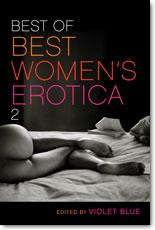

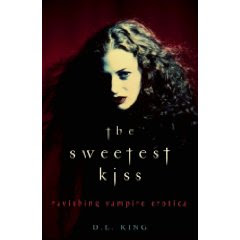


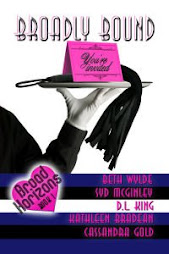.jpg)
